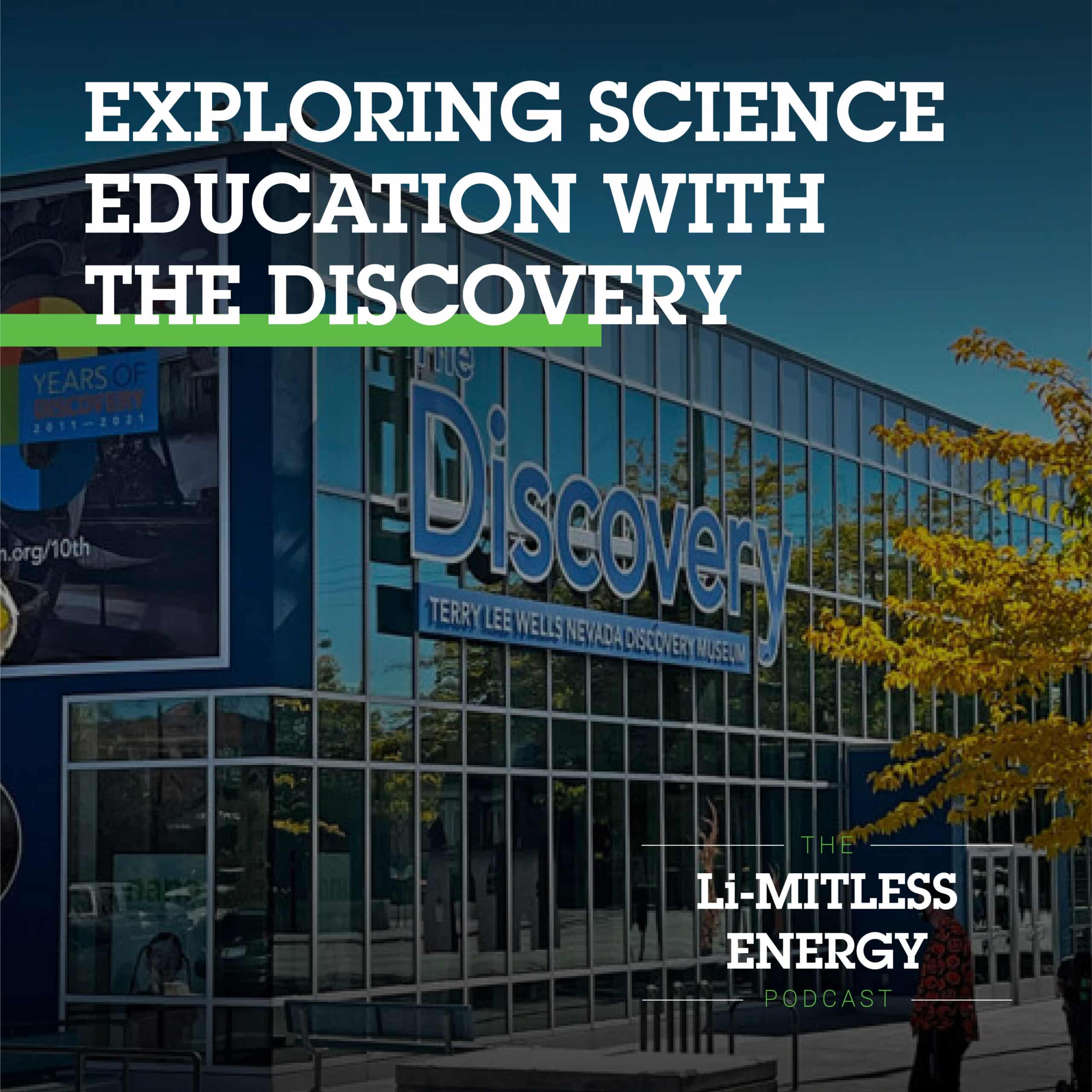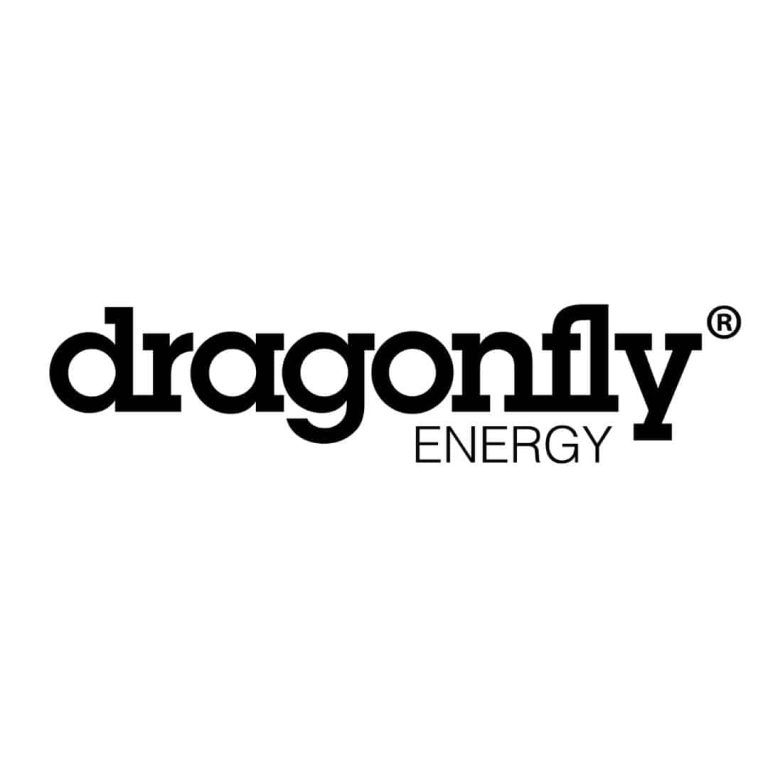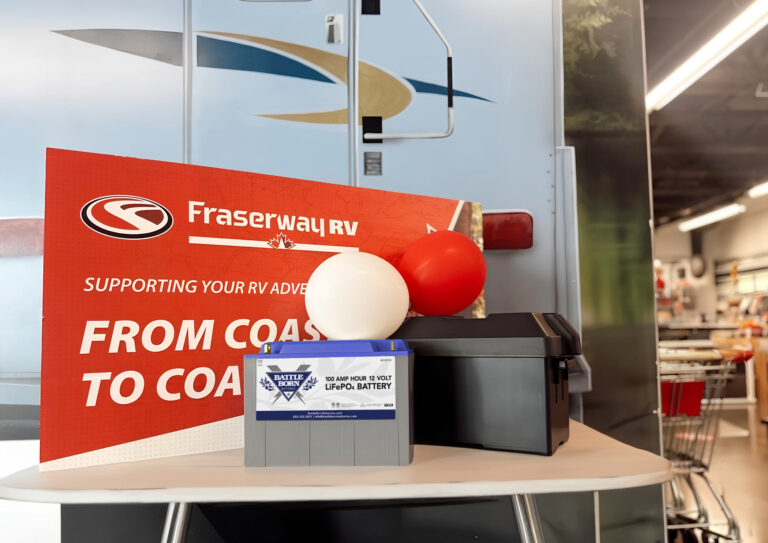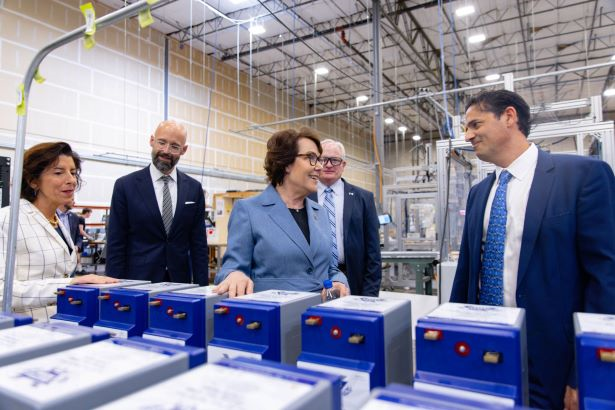As Reno, Nevada’s first science museum, The Discovery has been paving the way for learning and innovation since 2011. This one-of-a-kind facility sits in the heart of downtown Reno and draws visitors from far-reaching parts of the state. Dedicated to creating a space where people of all ages can discover a love of learning, The Discovery aims to empower generations of lifelong learners.
Inspiring Curiosity and Lifelong Learning at The Discovery
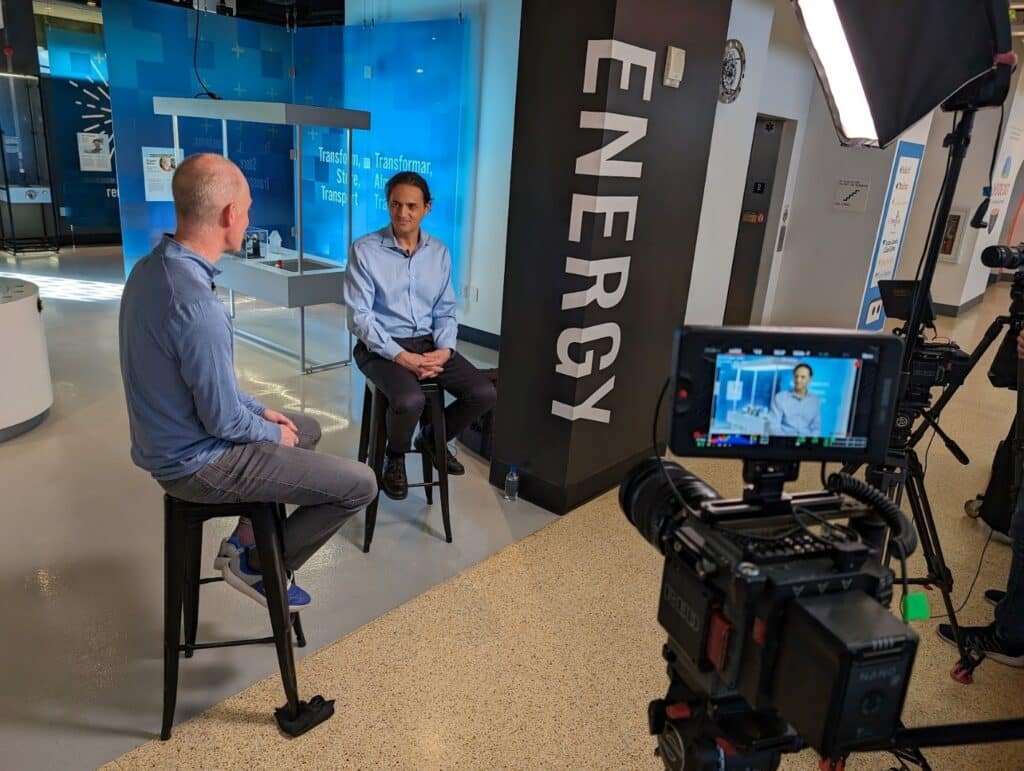
Since The Discovery opened its doors in 2011, it has been dedicated to fostering a love of learning and science in children and adults in Reno, NV. Focusing on hands-on learning, a variety of exhibits spread throughout the museum, 67,000 square feet, sharing the latest discoveries in science, technology, engineering, art, and math (STEAM). This world-class science center is dedicated to making a lasting impact on Northern Nevada. With over 1.5 million visitors over the last decade and a half, The Discovery has played a key role in the cultural and economic growth of the region.
In this episode of the Li-MITLESS ENERGY Podcast, host Denis Phares sits down with Patrick Turner, the Chief Advancement Officer of the Discovery Museum in Reno, Nevada. They discuss the evolution of the museum from its initial fundraising as a children’s museum to becoming a science museum catering to all age groups. The importance of this transition is explained, highlighting the museum’s commitment to providing lifelong learning opportunities in science. Turning to the museum’s impact on education, Denis and Patrick discuss the school field trip program and outreach initiatives that are aimed at serving a wide geographic area, including surrounding rural communities. They dive into the future of The Discovery as they hope to continue to inspire curiosity and a love for learning for years to come.
Listen to the full episode or watch the recording on our YouTube channel and be sure to keep up with The Discovery on their website!
Podcast Transcript
Denis Phares 0:16
Welcome to The Li-MITLESS ENERGY Podcast. And we are here today in Reno, Nevada, in the Discovery Museum. And my guest today is Patrick Turner, Chief Advancement Officer of the Discovery Museum. Welcome.
Patrick Turner 0:29
Yeah. Thanks for having me.
Denis Phares 0:30
Thanks for coming on the show. This is an important place for me because I have wonderful memories here. I brought my kids here over the last decade when they were little. And I remember walking around here very tired, trying to follow toddlers around. So, I do want to make this distinction, though, the Discovery Museum is not a children’s museum, it’s a science museum.
Patrick Turner 0:58
Exactly. That’s important.
Denis Phares 0:58
Can you explain the distinction to me?
Patrick Turner 1:00
So, when the museum or when fundraising for the museum began in 2004, all the way until we opened in 2011, the idea was to be a children’s museum here in Reno, Nevada. When our current President and CEO, Matt Sinclair, joined in 2013, part of the interview process with him, he presented to the board the idea that why should we be a children’s museum in a market that doesn’t have a science museum. So, everything we’ve done since he joined was designed or it has been designed to convert the experience here into more of a science museum. And the reason that’s important is a children’s museum, by definition, serves families with kids about 12 and under. A science museum can serve everybody, cradle-to-grave, with science learning. As I’m sure you’re aware, being a lifelong learner is important. So, when you’re a science museum in a community this size, there’s a lot of potential for who you can serve in terms of being cradle-to-grave learning opportunity. It’s an important distinction for us, it’s also a challenging one, because, when you fundraise for a project for six and a half years, and everyone understands that you’re going to be a children’s museum, it’s kind of a tough transition for people to remember. So, we do our best to try and convince people that you don’t have to have kids or be a kid to come to the Discovery and have fun learning.
Denis Phares 2:23
Well, the presence of a science museum here in Reno really gives the city distinction. You’ve got the Exploratorium in San Francisco, and I grew up in Philadelphia, we had the Franklin Institute, and I grew up going to these. How does the Discovery Museum fit in the context of the Smithsonian, and then all these famous signs…
Patrick Turner 2:44
Sure. You draw the connection to the Exploratorium in San Francisco or the Franklin Institute, that’s what we want people to equate us to. This is an all-ages science exploration experience. You don’t have to be a young learner to come here. Even if you’re a 40-something with no kids, we want you to be able to come here and have a fun learning experience. It’s pretty incredible when we have conversations with people. There’s one conversation I had with someone from San Francisco at one point a while ago, they left a comment card, actually, and said they really love the Discovery, they wish that they had something like this where they came from. And so, I followed up by email, and I said, “I really appreciate your comment. Thanks so much. Where do you come from? Where do you live that you wish you had a museum like this?” And the woman replied, “I live in San Francisco.” And I was like, “Wow, thanks for the compliment. That’s incredible but, did you know about Cal Academy? Did you know about the Exploratorium?” And she did, she just was really appreciative of the experience here, the size of the museum. And I think she was surprised that a town like Reno has a museum this size.
Denis Phares 3:53
Well, this one is also particularly hands-on, is it more hands-on than the bigger ones?
Patrick Turner 3:59
No, I think we’re on par in terms of the level of interactivity here. When you go to the Exploratorium, there’s very few things that you can’t touch. And that’s what we’re striving for as well. We want people to be able to experience the learning, not just read some text, or see a video, or anything like that.
Denis Phares 4:18
But it evolves. There’s activities here, they’re structured activities. So, certainly, there’s a lot of continual thought and innovation that goes into developing what you guys present here. What’s your involvement in that?
Patrick Turner 4:32
So, as Chief Advancement Officer, I oversee our marketing, but then I also sort of helped coordinate our fundraising team as well so that those two things happen in concert. Like I said, the biggest challenge is helping people understand that, when they’re supporting The Discovery, they’re supporting science learning for the entire community, not just for young families. So, it’s certainly a challenge for me, but it’s a challenge for our fundraising team to be able to convince people the need for support not just for programming, or camps, or things like that for young kids, but also for adults as well. And we have a lot of programming for adults here.
Denis Phares 5:10
So, ultimately, the mission of the Discovery Museum is more than just teaching science. Because I know that, over the years, you’ve had a lot of exhibits, you had exhibits involving history, now you’ve got an exhibit with mental health, mental health focus. It really is more than science, right? It’s nurturing and helping kids mature, in addition to having the STEM component.
Patrick Turner 5:37
Right. Yeah. Our mission is simply to inspire. We want people to come here and have a really fun learning experience that inspires them to look further into whatever interests them. So, one of my favorite stories is a kid named Josh who came through our camp program a while ago. At the time that he started camps, which was, gosh, now probably seven or eight years ago, he was struggling a little bit in school. Didn’t really have a passion for learning, but came here as a camper. And through the course of two weeks of our science camps, discovered a love of science and actually ended up changing his performance in school because of that, and really finding a science focus. And he’s carried that on into his young adulthood now. So, those are the stories we’d love to hear; the people that come here and find a love of science, and then turn that into some sort of actionable career path or just sort of passion that they’ve researched further.
Denis Phares 6:38
There must be so many of those stories.
Patrick Turner 6:41
There are. It’s not always easy to corral them because people grow up, and they move on, and it’s not easy to track. But, usually, through our camp program, where we have kids here for a full week, or multiple weeks throughout the summer, we can have longer conversations with the parents or with the kids and really determine, “Did you find a love here?”
Denis Phares 7:04
Yeah. Well, you’ve been around long enough now that you have kids that grew up in this and are now in college or older, and you have them come back.
Patrick Turner 7:10
My kids are examples of that, for sure.
Denis Phares 7:12
Yeah. Well, mine too. Actually, when I told him I was doing this, they were pretty excited.
Patrick Turner 7:20
(Laughs) Well, now you’ll have to bring them back.
Denis Phares 7:21
I will definitely bring him back because I do remember, as I was walking around as a parent, I was pretty hands-on on all the toys, and equipment, and everything. There’s some fun stuff going on. Those puzzles that you had back there, I couldn’t figure those out.
Patrick Turner 7:37
Yeah, the brain teasers are tough. And there’s no better example for a young learner than seeing an adult learner who they already have a connection with being passionate about learning. I tried to model that for my kids, and hopefully, I did that. Our role as parents isn’t to come here and watch the younger kids learn, our role is to learn with them and show them that a passion for learning is something that carries on well beyond childhood.
Denis Phares 8:05
Yeah. Absolutely. That was one of the things that I would get excited as a parent going and seeing an exhibit and being able to explain it to my kids. And good memories. That’s why something like this is so important for a community. How involved are you with the local education system, with the county in terms of promoting STEM, in general?
Patrick Turner 8:25
So, our school field trip program is one of our biggest. We usually see, on an annual or on a school year basis, we see about half of the school district through our doors. That’s a number that we’ve always strived to grow because everything that we do in our school field trip program is tied to the standards that the teachers teach to. So, if a first-grade class is doing something related to science, for example, there are standards that they have to adhere to in terms of what they’re teaching those students. Our field trip program is directly connected to that, so that when students come to the museum on a field trip, there are pre and post-activities that we provide to the teachers so that they can kind of start the field trip in the classroom before they get here and then continue it afterwards. But what they do while they’re here is directly connected to what they’re learning in the classroom, so that it all works together with what the school district is doing. The challenge for us for a while with our field trip program was transportation. I’m sure folks are aware that, when the pandemic, or when we came out of the pandemic, jobs were not easy to fill, and so the school buses were hard to come by for us. But that seems to be a thing of the past now. So, we’re seeing our school district, our field trip numbers climb back up again. It’s an important program.
Denis Phares 9:53
Tell me about your outreach program.
Patrick Turner 9:55
So, that’s new to us. We actually received funding a few years ago to do a feasibility study. Before we launched that program, we wanted to make absolutely certain that we were going to design the program to the needs of the communities that we would serve. And we knew, just based on our geography, that we were going to need to serve a pretty wide area. There’s a lot of Nevada to the east of us and a lot of smaller rural communities to our north and east. And so, it was important for us to make sure that we were going to design a program that was going to work with what those communities needed. The feasibility study, we got those results. We’ve designed now the curriculum and launched the program. We have a van, we have a dedicated educator who’s already going out into the community. But it’s a growing program, and we’re really excited to get that thing off the ground so that we can serve not just schools, but community centers. If a local city council wanted to bring the Discovery to their small town, we can do science assembly programs where we get a large audience and we do sort of a stage show around science to generate that interest, or we have classroom programs. And probably, one of the most popular parts of the outreach program is our portable planetarium. It’s actually a big inflatable planetarium that can seat about 30 adults or 40 kids. But it’s a planetary experience like you would see at a planetarium or at a fixed planetarium just on a portable scale.
Denis Phares 11:32
Just a big inflatable dome.
Patrick Turner 11:33
Yep, exactly. With a really great projector inside and a little sound system so you can hear narrated star shows, or really, any science content can be projected in there on the inside of the dome.
Denis Phares 11:47
That’s awesome.
Patrick Turner 11:48
Yeah, it’s really cool.
Denis Phares 11:51
Yeah. So, I would imagine it costs a little bit to get in here. There’s some admission fee.
Patrick Turner 11:59
Sure.
Denis Phares 11:59
But you must get a lot of support from the state, from the federal government, what’s that mix?
Patrick Turner 12:05
We actually don’t get a ton of support from the state or the federal government. We’re not of a size yet where we can apply for much federal funding. State funding that we get usually comes through other partnerships, like for educational programming. Predominantly the support, the philanthropic support we get comes from corporations like Dragonfly Energy, and from foundations. We see a lot of foundation support for people who are passionate about STEM education. And so, we’ve built a long list of folks who we go back to on a regular basis and ask for support. And then, of course, things like admission and other paid programs help support the organizations as well.
Denis Phares 12:49
There must be, at least, some recognition of the importance of the local science museum in raising the visibility of STEM and exposing kids.
Patrick Turner 12:58
Oh, yeah. We definitely see great support for what the Discovery does in terms of putting Reno on the map as a community that has a science museum. It’s the other story I hear a lot from people who migrate to Reno either for work or for retirement, or whatever. When they first learn about the discovery, they’re always shocked that a town this size, which feels small when you come from the Bay Area, or San Jose, or a larger metropolitan area, has a science museum as big as this one. And part of that is driven by the building that we inhabit. This used to be Reno City Hall, so we kind of stepped into 67,000 square feet, where a museum that’s only 12 years old as we are would normally be much smaller because they typically start in some prefab concrete building, and build a following, and build levels of support, and then matriculate into something larger. A pre-existing building, or build their own building through a capital campaign, or something like that. But, City Hall, this building became available because City Hall or the city of Reno moved out of it, and so we put in a bid and we’re happy to take over the space.
Denis Phares 14:15
Well, I can speak from experience. It gave me a level of comfort when I moved my family with two small kids from Southern California to Reno. And it’s like, okay, there’s a Discovery Museum, there’s a science museum, we got a Trader Joe’s, I think we’re going to be okay.
Patrick Turner 14:34
All the landmarks, all the amenities. Yeah. This town has actually more in the way of museums than I think people realize. We have a really great Automobile Museum. We have an incredible Museum of Art. And then, with the Discovery, it’s sort of like this neat little trifecta of museums.
Denis Phares 14:51
Yeah, agreed. No, it’s an important part of the community, and you guys do important work. What is it for you on a personal level? Your background is in marketing, and did you ever see yourself being a proponent of science education and technology?
Patrick Turner 15:10
Probably not initially. When I worked for the agency that I worked for before I came here, I certainly didn’t really have a passion for science. But the reason I ended up here, on a personal level, is because, when the museum was about ready to open, at that time, let’s see, my daughter was six, and my son was just born. And I really wanted to see this project through to fruition after having spent six years of my life in the agency world helping with the fundraising. And so, it made sense to make the jump from for-profit to nonprofit and help this project open up its doors in 2011, September 2011. But, definitely, over the course of the last 12 years working here, I’ve really become passionate about science, and science learning, and science communication. And I think that that’s what keeps me here is hearing the stories like we’ve talked about of people who come here and they learn about science and develop a passion for it, and it translates into career paths.
Denis Phares 16:20
Mm-hmm. Well, you’ve evolved growing in this role, it sounds like. How has the museum itself evolved over time, and where do you see it going in the future?
Patrick Turner 16:27
So, over time, like we talked about the evolution from a children’s museum to a science museum through the exhibits that we host and through the programs that we offer, that’s been a pretty drastic transition, but one that, I think, served our community really well. Long term, I think we’re gonna probably grow out of this building. I think we’re gonna either have to add square footage somehow, or look at a new location, possibly. The one thing that we’re really passionate about, though, is the location being so close to downtown and being so close to the other two major museums.
Denis Phares 17:05
It is a great location.
Patrick Turner 17:06
Yeah. We don’t want to leave that behind because this sort of central location has a lot of benefits to our community in terms of accessibility. And so, if we can stay where we are, and just grow the footprint, that would be amazing.
Denis Phares 17:20
When the museum started, this was a casino town. Now it’s kind of a tech hub.
Patrick Turner 17:26
Yeah. Exactly. There’s been a huge change in industry in this town, and it just seems like it’s going to continue. There’s so many benefits to being a tech business and coming to northern Nevada. And so, we want to be here. We want to be, like you said, we want to be that that museum that people are surprised by when they move here, but then totally comfortable with once they’re settled because it feels like, “Oh, yeah, this is the Science Museum just like I had when I lived in Northern California,” or Southern California, or wherever that might be.
Denis Phares 18:00
Well, I think in the past, it was surprising to those of us that moved in. I don’t think it is anymore. I think Reno has grown to deserve the museum that it has now.
Patrick Turner 18:11
Thank you very much. I totally agree. I think it’s less surprising to people now that, because of the way Reno has changed, I think they expect amenities like this one when they move here.
Denis Phares 18:24
Right. Well, great. Keep up the good work that you’re doing.
Patrick Turner 18:29
Awesome. Thank you.
Denis Phares 18:30
I really appreciate your time. And thank you so much for being on the podcast.
Patrick Turner 18:33
Yeah. Thanks for having me. This has been really fun.
Denis Phares 18:36
Thanks for listening to the Li-MITLESS ENERGY Podcast, and be sure to subscribe on any of your favorite podcast platforms.
[End Of Recording]
